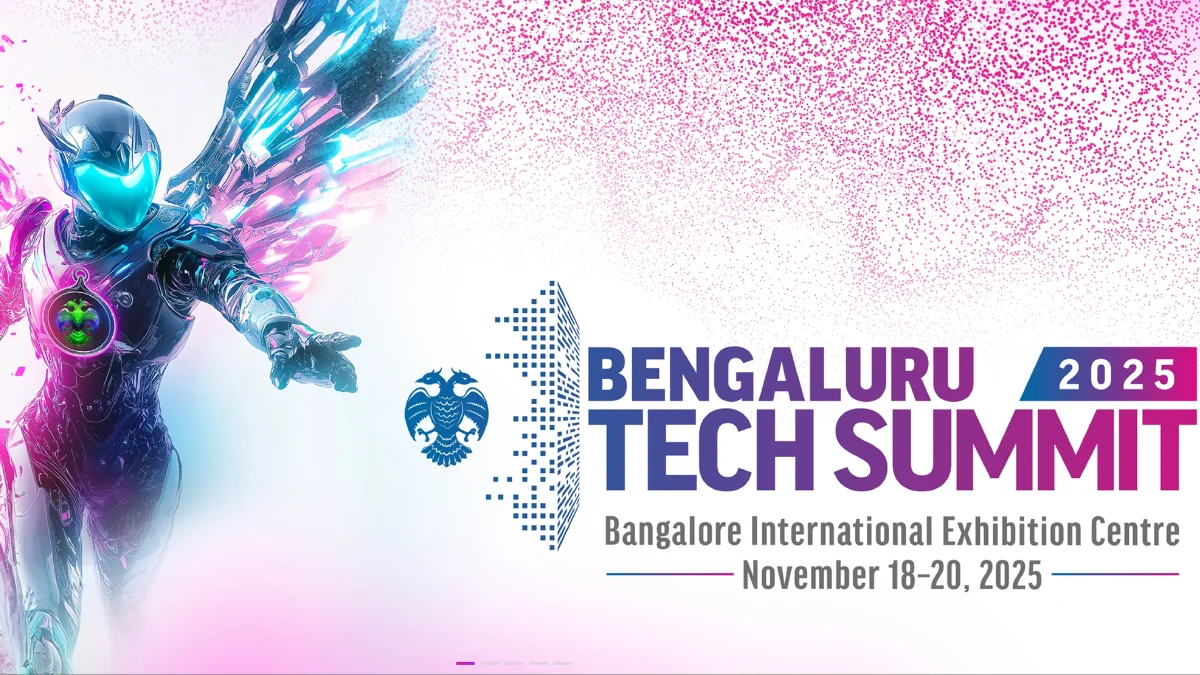Necessary Always Active
Necessary cookies are required to enable the basic features of this site, such as providing secure log-in or adjusting your consent preferences. These cookies do not store any personally identifiable data.
|
||||||
|
||||||
|
||||||
|

In Focus
Karnataka opened the Bengaluru Tech Summit 2025 with substantial technology and policy announcements, positioning the state for wider digital and industrial growth. In a report published by CIOL, the government confirmed the release of three major policies and introduced an affordable AI-ready computer named KEO during the inauguration at the Bangalore International Exhibition Centre.
Karnataka’s New Policy Framework And AI PC Launch
The summit began with the rollout of three major policies that will shape Karnataka’s technology priorities over the next decade. The updated Information Technology Policy 2025–2030 aims to support deep-tech sectors, improve research collaboration and extend technology penetration across multiple districts. Earlier this year, at the WAVES Summit 2025, global tech leaders like Adobe, Google, Meta, Microsoft, and NVIDIA participated in a signed agreement with the Indian Institute of Creative Technology.
The state’s new Startup Policy 2025 focuses on enhancing access to funding, improving innovation infrastructure and supporting emerging ventures through dedicated clusters and mentorship programs. A Space Technology Policy was also introduced, targeting satellite systems, propulsion technologies and research partnerships.
A key hardware launch was the KEO PC, created to offer low-cost, AI-ready performance for students, small businesses and regional users. The state positioned KEO as an accessible alternative for digital learning and early AI adoption. These initiatives together reflect a focused effort to widen digital inclusion and support technology development within and beyond Bengaluru.
Notable elements influencing the announcements:
The Bengaluru Tech Summit 2025 drew strong global representation, strengthening the summit’s stature as a leading international technology platform. Delegations from more than 60 countries attended the event, including representatives from the United States, United Kingdom, Germany, Israel, Japan, Australia and South Korea. These delegations participated through national pavilions, government-industry meetings and innovation demonstrations.
The exhibitor listing from 10Times, the official partner for the Bangalore IT Biz event, indicates participation from more than 295 companies across mobility, fintech, biotechnology, semiconductors, AR and VR. Industry leaders, research institutions and startup founders contributed to technical sessions throughout the BIEC venue. The speaker lineup crossed 600 participants, providing a structured environment for policy discussions, technical exchanges and business engagement.
This diversity of participation enabled companies to evaluate opportunities in the Indian technology graph while engaging with a wide spectrum of global counterparts.
One of the prominent features of the summit was the presentation of more than 50 startup innovations across sectors including biotechnology, extended reality, deep-tech engineering and smart mobility. As highlighted by Convergence-Now, the showcase emphasized the growing maturity of Karnataka’s innovation pipeline and its alignment with global technology priorities.
In parallel, the government outlined its infrastructure and business expansion plans. According to NewsFirstPrime, Deputy Chief Minister D. K. Shivakumar stated, “Our focus is to build a global business hub and create a future-ready infrastructure ecosystem for enterprises across the world.” This announcement was made during his address at the summit and underscores the state’s larger strategy to attract multinational operations and strengthen enterprise readiness.
To support readability and maintain balance, limited high-value points are included here.
Key observations linked to the startup and infrastructure focus:
These developments suggest a coordinated approach to strengthening Karnataka’s technology pipeline while supporting long-term business confidence.
The developments at the Bengaluru Tech Summit 2025 offer several implications for the technology and business community. The policy rollouts, combined with global participation and the introduction of accessible AI-focused hardware, signal Karnataka’s intent to expand its influence as a regional technology hub. Businesses evaluating opportunities in India may find the combination of policy support, ecosystem diversity and infrastructure announcements to be indicators of long-term growth stability. In February, Paris AI Action Summit hosted by France and India.
The state’s efforts to widen digital access, encourage deep-tech development and attract global investment reinforce the importance of the BIEC Bengaluru tech expo within the national and international technology scope. For industry decision-makers, the summit provides a relevant foundation for evaluating innovation trends, partnership opportunities and future operating conditions within one of India’s most active technology ecosystems.